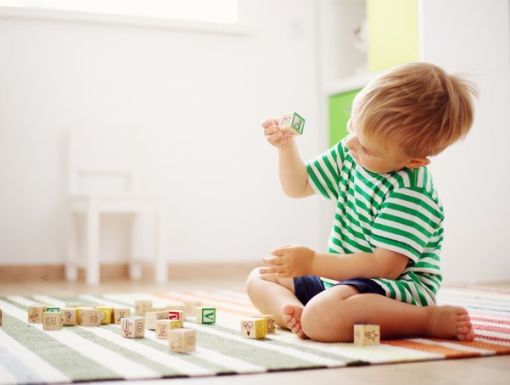
14 Life Lessons to Teach Your Child
If raising children came with an instruction manual, parents would probably still get things wrong. That's OK. Child-rearing is very personal and can look different from parent to parent. There is no right way, but some important life lessons can be taught no matter your parenting style. Here are fourteen significant life lessons to teach your children.
Integrity
Integrity is more than just being honest. It's having a good sense of right from wrong and striving to do the right thing even when it's hard. Teaching your children to be honest in little things will help them to be honest in bigger matters. In turn, you must also help make it easier for your children to be honest by not giving them a reason to be afraid of telling the truth. Honesty can also be manifested in being true to oneself. Encouraging your child to be honest about their feelings and setting healthy boundaries will also help them be truthful people.
Compassion
Compassion towards oneself and others is important in creating understanding. This can be done by teaching your child how to share and being generous towards others. You can also teach compassion by leading by example of not judging others harshly or working to put yourself in other people's shoes. Another way to teach compassion is to teach them the importance of saying, "I'm sorry," and helping them mean it. Lastly, it's important to learn how to forgive others and one's own shortcomings. Compassion is a bridge that connects you to others.
Perseverance
Learning to not give up will take your child very far. Life is not easy, so helping your child understand this from a young age will help tremendously. Help them to understand that nothing is inherently deserved but things are earned. No one can take away the pride associated with putting in the hard work.
Gratefulness
Teach your child to cultivate a spirit of gratefulness by reminding them of all the good things they presently have. Others might indeed have more than them but they can be reminded that they also have more than some. Make it a daily habit for yourself to share something you are thankful for. This will remind them of things they can be grateful for as well.
Organization
Let's face it, kids will be kids and that means they will likely be messy. But just because they tend to leave a mess doesn't mean you should let it slide. Help them pick up their toys, examine their homework to see if it's done as neatly as possible or give them a small household task like taking the trash out.
Patience
Being patience is a skill that's hard even for most adults. But helping your kids cultivate this trait from a young age will help when things don't go their way. Patience helps children develop a sense that things take time. You can help grow patience by letting them pick out a treat but telling them they will have to wait till after dinner to eat it.
Responsibilities
It's a good idea to give your child a sense that they play a role within the family. This will teach them that their actions affect others and have consequences. It will also teach them to be helpful. Giving your child the responsibility to help clean their room or wash the dishes will teach them accountability.
How to lose
We can't always win, whether it's a board game, soccer game or a job promotion. Sometimes we win and that's great! Sometimes we lose, but that doesn't make us a loser. Learning to lose gracefully helps them to roll with the punches and get right back up. It also teaches them to be happy for others even when it might bruise their ego a bit.
Try new things
Sometimes children might be afraid to try new things because they are shy or scared to fail. These feelings are valid but it's important to not let them stop your child from trying something new. This will also help them learn that it's OK to be bad at first, but the more you try, the easier it will get. It also might turn out that they don't like the activity but if they gave it a good shot, that's all that matters.
Good manners
Instilling good manners, whether it's learning to chew with your mouth closed or saying "please" and "thank you," is essential. These simple skills are more than having polite children. They teach your children to respect themselves and others.
Money management
Teaching your children the value of a dollar from a young age is never a bad idea. After all, things cost money! You can help develop your child's money management skills by teaching them how to earn money in exchange for household duties. You can also teach them how to spend their money wisely whenever grandma sends them birthday money. Last but not least, teach them how to save a small portion of the money they receive. These small skills will help them when they begin to earn money on their own.
Time management
Do you ever feel like your children are moving slower than molasses? It can be frustrating when you are trying to get out the door and they are playing a video game. You can help them develop time management skills by giving them a bedtime and making sure they stick to it. You can also set an expected time for them to complete their homework. Let them know that if their chores or homework aren't completed in a certain time frame, it will cut into their designated playtime.
How to ask for help
We all need help from time to time. Asking for help shouldn't be a sign of weakness but a sign of strength. Encourage your child to ask for help, whether it's pouring a glass of milk or trying to solve a math problem. When we treat asking for help as a sign of incompetence, we become more afraid to seek it when we really need it.
Be kind to others and yourself.
As the saying goes, "In a world where you can be anything, choose to be kind." Kindness will always go a long way. Teach your children to be kind towards their siblings and schoolmates. Encourage them to seek out the children who are excluded or might be differently abled. Teach them to choose their words carefully because they have the power to build up or hurt others. And overall, teach them to be kind and love themselves. When children have healthy self-esteem, they are prepared to handle life's ups and downs.
Helping kids be their healthiest selves. Find an Ochsner pediatrician near you.



